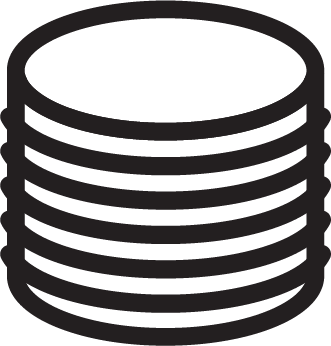2021 Grants for New Farmers
Australia's best 2021 farming grants
A new year approaches – financially, at least – and with new years come new opportunities. What’s stopping you from fulfilling some of your lifelong ambitions? There’s no time like the present, especially when it comes to making that dream rural life a reality.
One of the biggest barriers to starting your own farm or agribusiness is figuring out how to finance this venture. While some may be lucky enough to get help from friends and family around, others may find it extremely difficult to acquire funding.
This is where Farmbuy can help. Federal and local governments have all sorts of support programs, contracts, and grant awards that can help you kick off your agricultural dreams, so we've compiled some of the many opportunities out there in this article as a preliminary guide.
These grants are a great starting point, but sure to regularly check sites like GrantConnect, AusTender, business.gov.au, and the Department of Agriculture’s “Assistance, grants, and tenders” page for the latest opportunities and resources.
Agristarter Loans
Operated by the Regional Investment Corporation (RIC), Agristarter Loans is a program for first time farmers or farmers looking to plan for and implement succession arrangements. The program offers loans of up to $2 million.
There are two types of loans: first farmer (for individuals seeking to purchase, establish, or develop a business in which they hold sole/controlling interest) and succession (for businesses anticipating or undertaking succession arrangements).
The versatility of this loan is one of its most attractive features, as individuals and businesses can apply, regardless of whether they are starting an agricultural venture or expanding one. Loans can be used to buy or establish a farm business or pay for the legal costs of succession.
You can find more about the eligibility for the program and apply for it here. There is no deadline for this program, as it is ongoing.
New Business Assistance with NEIS
Having helped more than 185,000 people over the last 35 years, the New Business Assistance with NEIS program provides support to people interested in starting their own business or who need help to refocus an existing micro-business.
This program is particularly helpful for individuals in charge of a micro-business impacted by COVID-19. It provides small business training for people interested in self-employment, benefiting both newcomers to agribusiness and existing entrepreneurs.
8,600 people can take the program every year, which will give them access to personalized mentoring from a NEIS provider, support in developing a business plan, and even an NEIS allowance (if eligible) on top of the accredited small business training.
You can find more about the eligibility for the program and apply for it here. There is no deadline for this program, as it is ongoing.
Young Farmer Duty Exemption or Concession VIC
The goal of the Young Farmer Duty Exemption or Concession is to provide young farmers in Victoria with a duty exemption or concession when buying their first farm. The program aims to alleviate costs, as opposed to injecting additional capital.
Transfers of land will be eligible for a full exemption from duty if the farmland is valued at $600,000 or less or a concession from duty if the farmland is valued at $600,001 to $750,000. It is necessary for applicants to be under 35 at the time of transfer.
You can find out more about the eligibility of the program and apply for it here. There is no deadline for this program, as it is ongoing.
Agriculture Biodiversity Stewardship - Carbon + Biodiversity Pilot
Known colloquially as the C+B Pilot, the Agriculture Stewardship’s Carbon + Biodiversity Pilot is part of a larger federal program to create new market-based mechanisms that reward farmers for improving environmental outcomes on agricultural land.
One major focus of this program is improving on-farm biodiversity by supporting biodiverse planting projects in agricultural areas. Participants who work with the Pilot will receive payments according to their cost estimates.
Farmers will also work with carbon projects under the Emissions Reduction Fund, meaning that they may also be able to receive Australian Carbon Credit Units (ACCUs) for carbon in the plantings that can be sold to the federal government or other buyers.
You can find out more about eligibility for the program and apply for it here. The deadline for applications is 11 June 2021.
Emissions Reduction Fund
Administered by the Clean Energy Regulator, the Emissions Reduction Fund (ERF) is an ongoing scheme that provides opportunities for farmers and land managers to take part in emission reduction and carbon sequestration (capture and storage of carbon) projects.
The aim of the ERF is to reduce emissions in accordance with the reduction target of 26-28% below 2005 levels by 2030. Australian Government will purchase lowest-cost emissions reductions and sequestered carbon from across the economy.
Program participants can earn one ACCU for each tonne of carbon dioxide equivalent stored or avoided by a project. Landowners and farmers who adopt ERF approved methods can sell their ACCUs for additional or alternative income.
You can find more about the eligibility for the program and apply for it here. There is no deadline for this program, as it is ongoing.
Environment Restoration Fund: Wildlife Rescue and Rehabilitation
The purpose of the Environment Restoration Fund is to assist the work of wildlife rehabilitation centres in rescuing, treating and rehabilitating wildlife impacted by bushfires by providing funding.
Vets, animal hospitals, zoos, and foster carers are just some of those centres the program aims to help. The Fund aims to decrease the expenses incurred by these parties in treating affected animals and returning them to their natural environment.
Another key aspect of the program is investing in organizational and carer capacity and preparedness to respond to future emergencies, including encouraging the development of new organizations of this kind. Grants range from $5,000 to $1 million.
You can find more about the eligibility for the program and apply for it here. The deadline for applications is 30 June 2021.
Wine Tourism and Cellar Door Grant
Introduced in 2019, the Wine Tourism and Cellar Door Grant program intends to financially support vinicultural producers who add value to the industry by encouraging tourists to visit their wine regions.
The program is part of a coordinated suite of measures developed in accordance with the reforms to the Wine Equalisation Tax arrangements. It is also intended to complement the Export and Regional Wine Support Package implemented by Wine Australia.
Wine producers across all eight states and territories will be able to access an annual grant reflective of their eligible physical cellar door sales. The program has $10 million in funding available and provides grants of up to $100,000 to eligible producers.
You can find more about the eligibility for the program and apply for it here. Deadlines for upcoming application rounds are yet to be announced.
Smart Farms
The Australian Government has allocated $136 million to the Smart Farms program, a 5-year program that began in 2018. The program provides financial support for the development and implementation of practices, tools, and technologies to protect and improve Australia's soil, water, and vegetation.
Funding is meant to impact farmers and land managers, fishers, foresters, and regional communities more broadly. Intended to improve land management practices and biodiversity, the program also supports changes intended to aid adaptation to changes in climate, weather, and market.
There are three elements to the program: Smart Farming Partnerships, Smart Farm Small Grants, and Building Landcare Community and Capacity. While they all work to protect natural resources and increase biodiversity, each must be applied to separately.
Smart Farming Partnerships and Building Landcare Community and Capacity are no longer accepting applicants, but the Smart Farm Small Grants program is still operating, with three more rounds of funding anticipated.
Smart Farm Small Grants funds organizations and individuals to undertake sustainable agricultural projects that will adopt best practice natural resource management methods. Grants range from $5,000 to $200,000.
You can find more about the eligibility for the program and apply for it here. Deadlines for upcoming application rounds are yet to be announced.

 Tanks
Tanks